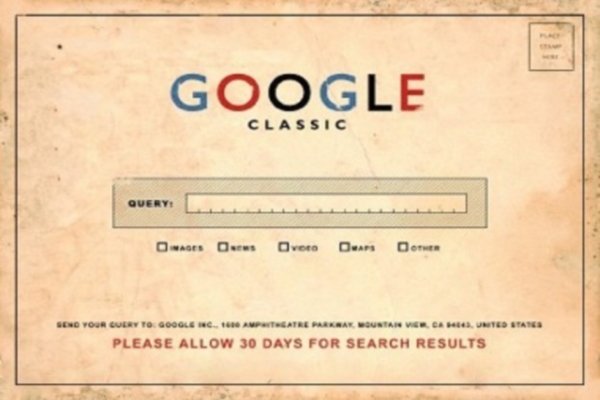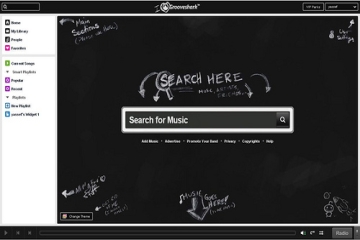Written by Jason Wire

Photo by Dullhunk
Tips, tricks and resources to help you find that digital needle in the huge cyber-haystack.
519diggsdigg
Learning to navigate the World Wide Web effectively is an important skill, and there are lots of different ways for you to find the information you are looking for. Whilst the following list of tips and websites is by no means exhaustive – and we’ve missed out some massive topics such as travel, which deserve a post in their own right – they should be enough to get you started.
Using Google Operator Hacks
One of the things I love about Google is its clean layout – just type your query and hit enter. As well as the advanced search function, there are a load of operator hacks you can use to refine your search results. Check out the excellent Google Guide for a full list.
Here is a selection of some useful ones:
- salsa -dance will find pages containing “salsa” but not “dance”
- castle ~glossary will find pages containing glossaries and terminology related to “castle”
- define:matador will bring up definitions of the word “matador”
- ~crocodile will search for the word “crocodile” and similar words
- lon sfo to book flights from London to San Francisco
- delta flight 5778 to check the status of this flight
- what time is it in New York to find out the time in this city
- love site:www.matadornetwork.com/life to search only Matador Life for the word “love”
- love -site:www.matadornetwork.com/life to exclude Matador Life results from your search for “love”
And don’t forget if you want to visit a site that is down, or that your company’s server won’t let you access, you can view the Cached version to see a Google snapshot of that page from when it was last crawled.

Photo by author.
Finally, if you’re fed up with all the annoying affiliate links clogging up the Google search results, check out Give Me Back My Google.
Online Research
Conducting online research is about more than just typing a few words into Google, even if you do know the operator hacks! There are a lot of resources out there to help you. Here’s how to find:
Biblical text: Find specific text from the Bible at BibleGateway.
Bibliography formatting: I’ve been using Easybib since my ninth-grade English teacher suggested it. Even if you know your style formatting from memory, this makes citing sources much easier with its instant ISBN lookup feature.
Books Online: Google Books has a surprising number of free books available online, and includes search features which are great for research. It’s also worth checking out Project Gutenberg, which has freely available digital copies of over 33,000 previously published titles.
Court Cases: LexisNexis has quite a few cases available for free.
Etymology: Find the root of any word at Etymoline.

Photo by Shirone Koeuro
Human Sources: Help a Reporter Out (HARO) is a service that lets you connect with people around the world who can give you information or quotes on topics you are researching.
Newspapers: Newspapers dating back hundreds of years are available at the Google News Archives, but you can also use LexisNexis if you’ve got a subscription or can log on via a university network.
Primary Materials from Around the World: The UNESCO World Digital Library is a digital compendium of “significant primary materials from countries and cultures around the world.”
Scholarly Sources: Google Scholar is a compendium of thousands of research articles. Other good resources include the JSTOR database, and the excellent paid service, Questia.
And if you want to tap into the ‘digital brain’ of the Internet, use the twitter search feature and check out the most popular Google Insight stats to see what the online population are thinking about.
Note: If you are interested in learning more about research techniques and resources, the MatdorU New Media School has a Pro Module on How to Do Desk Research.
Finding Multimedia
Pretty pictures and lovely sounds make the (cyber) world go round. Here are some resources for finding free photographs, video and music on the World Wide Web. Just, don’t breach any copyright laws, OK?

Photo by Yassef
Identifying Songs off the Radio: Use the iTunes Music Store’s Radio Charts, listed by city and station, to listen to song clips from tons of radio station playlists. Perfect for nabbing the details of that elusive radio song that’s been stuck in your head all day long.
Movie Scripts: Drew’s Script-O-Rama has film scripts, TV scripts, film transcripts, and even a fun section on movie-themed haiku!
Movie Subtitles: OpenSubtitles.org is the “biggest multi-language subtitle database.”
Music: Wanna turn Google into your own personal Napster? Copy and paste the following complex operator into the search box and replace “Beastie Boys” with whichever band or artist you’re looking for.
-inurl:(htm|html|php) intitle:”index of” +”last modified” +”parent directory” +description +size +(wma|mp3) “Beastie Boys”
For a kick-ass music player, check out Grooveshark. And for an interesting pop music aggregator, The Hype Machine will often find awesome new songs before anyone else.
Music Based on Your Mood: Musicovery is an interesting little song aggregator for your mood, and AllMusic has just about every artist and band sorted by emotions too.
Photographs: As well as flickr.com, you can search the Creative Commons archive directly through Google: create an advanced image search and check the box for “Search only CC material.”
Torrents: Torrents are “map” files you download to your computer that let you see and download different pieces of the file you want from multiple users simultaneously, which makes download rates much faster. All types of file are available, from movies to audio to programs and more. Search directly at The Pirate Bay or at ISOhunt.

Photo by Robert S. Donovan
Video: These have always given me the best results: Frontline – Google Video – Journeyman – MatadorTV – The Hub – Tripfilms – VBS.tv – Vimeo – YouTube
Technological Know-How
For when you’re bored, or Facebook is down, or your printer is blinking at you in a strange code, here’s how to find:
Blogs You Might Like: Google Blog Search is Google, but for blogs. Cool, huh?
Deleted Files: It’s not easy, but the instructions at this site helped me recover three years of documents.
Down Websites: If you want to know whether Gmail – or a number of other popular sites – are broken or just not working for you, visit DownRightNow to find out.
How Much Energy Something Uses: You can use the nifty app at GE’s website or check out the list at Michael Bluejay.
Instruction Manuals For Anything: These two websites mean you’ll never need to worry about throwing away an instruction manual again: Manuals Online, and Safemanuals.
IP Address: WhatIsMyIPAddress.com will let you know your IP address just by visiting the site, which could be useful for those interminable calls with technical support.
Stars in the Sky: You can’t always find the North Star, but PBS’s Your Sky Tonight makes pointing out the constellations easy.
Your Own House: The Google Maps Street View covers nearly the whole inhabited world, and Bing’s Bird’s Eye View is a seriously awesome companion. I use these both religiously when searching for an apartment.
Just For Fun

Photo by Manuel Bartual
The Internet wouldn’t be the same if we didn’t use it to waste time that we could be using productively. With that in mind, here’s a few lighthearted sites where you can find:
Anagrams: WordSmith will give you anagrams of whatever text you type in. Names are particularly good. Did you know an anagram of Jason Wire is I jaw snore?
Chuck Norris: You’d think you could just Google him, but….
Connections Between Random Things: Omnipelagos knows how Lady Gaga, Ebeneezer Scrooge, and rocking chairs are connected. Do you?
How Much Money You’re Worth: Answer a bunch of questions on Human For Sale, and you’ll finally know the answer!
P.S: Help this guy to find the people
Click here for More information
The missing Snowmass Village resident George Aldrich


Google Search is cool.
Nice article. Useful information.
You can even download books from google books as pdf easily for free.